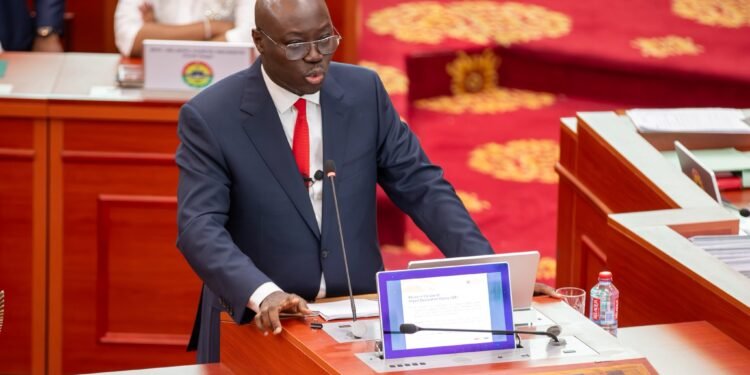Ghanaian consumers are beginning to experience significant relief at fuel pumps across the country as major Oil Marketing Companies (OMCs) implement reductions in fuel prices for the first pricing window of November 2025.
The downward adjustment, which took effect from November 1, reflects the combined impact of a stronger cedi and declining international crude oil prices.
Leading the market response, Star Oil announced the biggest drop so far, cutting its petrol price to GH¢11.59 per litre, down from GH¢12.77, while diesel has been reduced from GH¢12.97 to GH¢12.47 at selected service stations nationwide.
On November 4, 2025, state-owned company GOIL PLC followed suit, confirming new pump prices across its network. The company’s latest review pegs petrol at GH¢12.52 per litre, down from GH¢12.98, and diesel at GH¢12.77, down from GH¢13.85.
In a similar move, TotalEnergies also reduced its pump prices, with petrol now selling at GH¢12.55 per litre, down from GH¢12.88, and diesel priced at GH¢12.77, down from GH¢13.30, effective November 4.
Another major player, Zen Petroleum, revised its prices slightly earlier on October 31, cutting petrol to GH¢11.97 and diesel to GH¢12.17 per litre.
According to information gathered by Vaultz News, several other OMCs, including major market players with large distribution networks, are expected to adjust prices within the coming days.
Market Forces Behind the Price Drop

The current reduction is consistent with earlier projections from both the Chamber of Bulk Oil Distributors (CBOD) and the Chamber of Oil Marketing Companies (COCM).
The two industry groups forecasted declines of up to 8 percent per litre for the new pricing window, attributing the drop to two key factors, a global slump in crude oil prices and the cedi’s strong recovery during October.
In its end-of-October market report, the CBOD explained that the domestic currency had rebounded sharply, helping to offset earlier depreciation pressures that had previously pushed fuel prices higher.
“The cedi for the last two months dropped significantly from about GHS10.50/USD in August to about GHS12.80/USD at the end of September.
“The sharp depreciation was a key driver of the surge in pump prices over the period.”
Chamber of Bulk Oil Distributors (CBOD)
It added that the recent appreciation alongside falling global prices has helped ease pressure on petroleum import costs.
“The sustenance of the declining trend will provide relief to consumers and support broader price stability within the economy, especially as global demand softens towards the end of the year. “
This development also underscores the importance of stabilising the domestic currency.”
Chamber of Bulk Oil Distributors (CBOD)
The COMAC echoed similar sentiments, noting that “both factors played an instrumental role in the projected price decreases at the pumps,” while urging government and regulators to maintain consistent macroeconomic policies that support currency stability.
Stronger Cedi, Softer Global Prices

Between October 16 and October 31, the Ghanaian cedi appreciated from GH¢12.63 to GH¢11.21 per U.S. dollar, an 11.22 percent gain, nearly reversing the 13.33 percent depreciation recorded in the third quarter of 2025.
Market analysts have linked this rebound to the Bank of Ghana’s revised foreign exchange intervention strategy, which introduced spot-based forex sales and improved liquidity on the interbank market.
At the same time, global crude oil prices fell to a five-month low of US$62.82 per barrel, representing a 6.49 percent decline.
The drop has been attributed to weakening demand amid renewed U.S.–China trade tensions and market concerns over a potential global oversupply heading into 2026.
Prices of refined petroleum products on the international market also followed a similar trajectory, with petrol dropping by 3.30 percent, diesel by 2.48 percent, and liquefied petroleum gas (LPG) by 2.35 percent.
Consumers Welcome Relief

Motorists and businesses across the country have welcomed the reduction, describing it as a timely intervention ahead of the Christmas and New Year season, when transport demand typically spikes.
Commercial drivers have expressed hope that the current trend will continue if the cedi remains stable and international oil prices do not rebound sharply.
Economists, however, caution that while the short-term relief is welcome, sustained stability will depend on continued macroeconomic discipline, improved forex liquidity, and effective coordination among regulators, importers, and retailers.
Analysts say the development may also help to push inflation further down in the near term, especially given fuel’s critical role in determining transport fares and production costs.
As Ghana enters the final quarter of the year, consumers and businesses alike will be watching closely to see whether the downward trend in prices can be sustained, or whether volatility in global energy markets will once again test the resilience of the local economy.
READ ALSO: Freedom and Justice on Trial: GJA Takes on Cybersecurity Bill and Attorney-General























